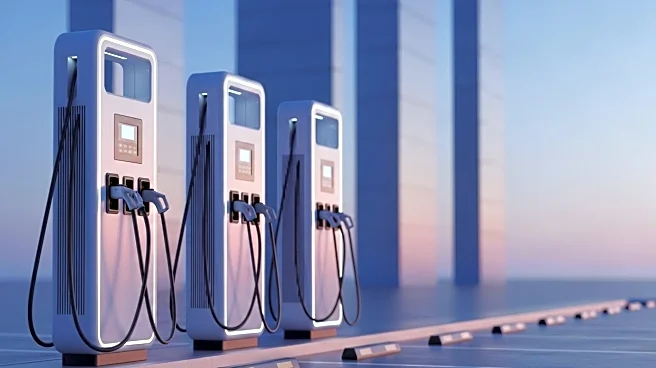What's Happening?
Multiple electric vehicle models have been canceled or postponed in the U.S. due to slowing demand and market uncertainties. Stellantis, for example, canceled the electric Ram 1500 REV pickup after several delays, citing reduced consumer interest in EVs. The decision reflects broader challenges faced by automakers as they navigate fluctuating demand and economic conditions. The cancellations highlight the difficulties in predicting consumer behavior and the impact of regulatory changes on the EV market. Automakers are reassessing their strategies to align with current market realities and consumer preferences.
Why It's Important?
The cancellation and postponement of EV models in the U.S. underscore the complexities of the automotive market, where demand for electric vehicles is influenced by economic factors, consumer preferences, and regulatory changes. For automakers, these decisions reflect the need to adapt to shifting market conditions and optimize product offerings. The cancellations may impact the industry's progress towards electrification and sustainability goals, as manufacturers reassess their strategies to balance innovation with profitability. The situation highlights the importance of understanding consumer behavior and market dynamics in driving EV adoption.
What's Next?
Automakers may continue to monitor market conditions and adjust their strategies to address consumer demand and regulatory changes. The industry may see increased focus on developing models that align with current market realities, potentially leading to innovations in pricing, technology, and marketing. The evolving landscape will likely influence future product development and investment decisions, as manufacturers seek to maintain competitiveness and achieve sustainability goals.
Beyond the Headlines
The cancellations reflect broader industry challenges in achieving sustainable growth amid economic uncertainties. The focus on consumer demand highlights the importance of affordability and practicality in driving EV adoption. The situation may prompt manufacturers to innovate and explore new strategies to meet consumer needs and regulatory requirements, potentially influencing the industry's long-term evolution.









